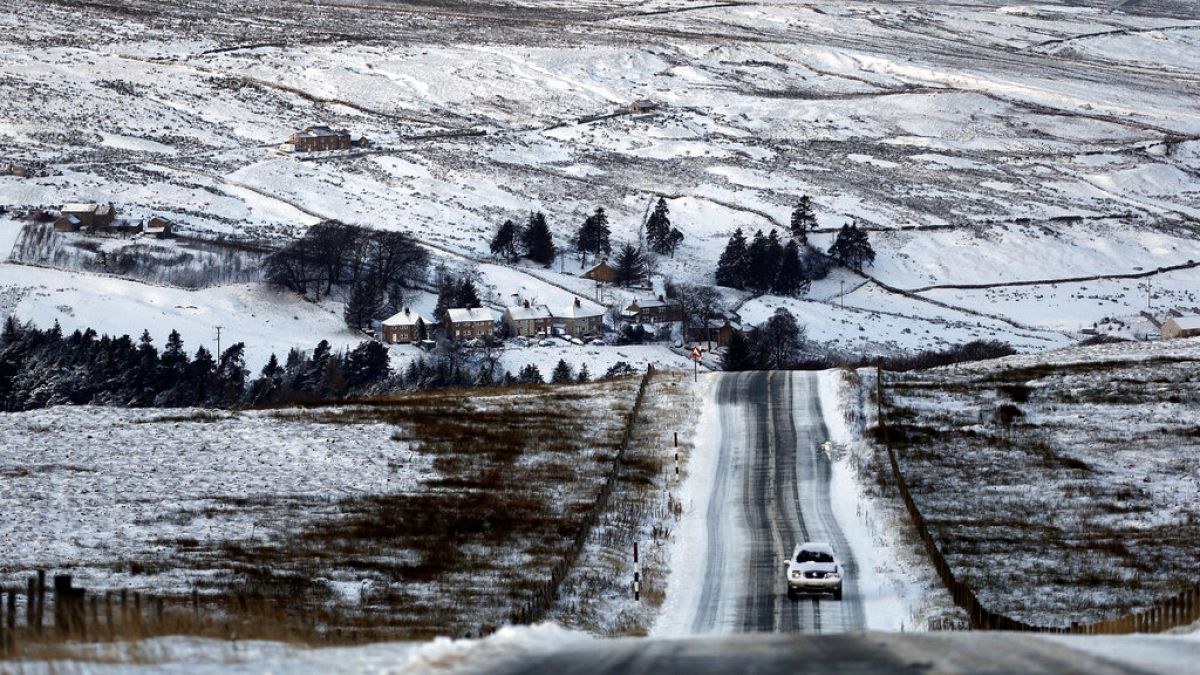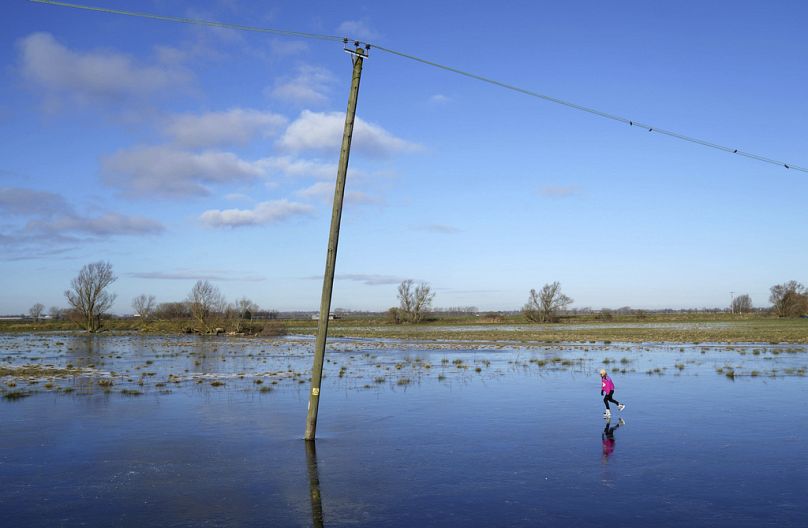New official data shows that a significant amount of people lost their lives last winter - and it seems as is a lack of governmental legislation and poor insulation could be to blame.
Stark new figures estimate that some 4,950 excess winter deaths last year in the UK were down to people living in cold and damp homes.
New official data from the End Fuel Poverty Coalition says those figures were recorded during winter 2022/23.
The Warm This Winter study also found that, when the average winter temperature in the UK drops below four degrees centigrade, the level of excess winter deaths sky-rockets.
Last winter, the average was slightly up from that, at 4.3°C.
It comes at a time when Britain is suffering extreme cold in many regions. December 2023 was unusually warm but, this month, temperatures have fallen to -14°C in some parts of the country.
Simon Francis, coordinator of the End Fuel Poverty Coalition, tells Euronews that this is a concerning situation.
“Figures from the Warm This Winter campaign show that 8.3m adults are living in cold damp homes this winter and, as temperatures drop, these conditions go from being uncomfortable to downright dangerous,” he says.
Francis, like many experts and critics of the current Conservative government say lawmakers are, in part, to blame.
“While households struggle, ministers are sitting on their hands and leaving matters of life and death to chance. Instead of taking action on energy bills, they have allowed energy firms to restart using the courts to force households onto prepayment metres and have now ruled out reform to energy tariffs to help those most in need,” he tells Euronews.
“They would rather play politics with a ridiculous Oil & Gas Licensing Bill that will do nothing to improve energy security or lower bills than take meaningful action to help households struggling right now,” Francis adds.
While the government says they are doing plenty to combat cold homes - introducing the likes of Warm Homes Discounts, Cold Weather Payments and Winter Fuel Payments, opponents say they are limited in eligibility and impact.
What’s more, some commentators have censured the government’s refusal of demands to provide both a help to repay scheme for those in energy debt and legislation to support households in need via an Emergency Energy Tariff.
"We are very concerned at the level of disinterest shown by the government in the welfare of older people at a time when the temperature is dropping well below freezing,” Jan Shortt, General Secretary of the National Pensioners’ Convention, which is part of the Warm This Winter campaign, tells Euronews.
“This presents a real dilemma for older people struggling with the cost of energy and other inflated bills – we know many are already afraid to turn the heating on at all,” she adds.
Across the UK, as the cost of living escalates, people are looking for places to keep warm on a limited budget - even outside of their own homes.
It’s been estimated that, last winter, around half a million Brits were forced to turn to so-called warm banks - places run by charities, churches and doctors surgeries - where people can shake off the cold, for a while at least at no cost.
When they first began to pop up, in September 2022, opposition Labour MPs criticised the sitting government, saying that the very need for warm banks is a terrible indictment for one of the world’s richest countries.
Labour leader and presumed prime minister-in-waiting Keir Starmer called their existence “serious and tragic.”
In the 14 months then, the situation appears just as grim.
“This is a national scandal. The UK has the least insulated homes in Western Europe. We’ve known this for years. Yet every year thousands of people are dying as a result… our government is doing practically nothing to fix the problem,” Greenpeace UK’s climate campaigner, Georgia Whitaker, tells Euronews.
Some, including Whitaker, suggest that much of the problem lies with the lack of insulation inside homes across the nation.
“Insulating homes at speed and scale right across the UK would drastically reduce these unavoidable deaths, as well as helping to tackle the cost of living and climate crises by lowering bills and slashing household emissions,” she says.
“Until that happens, this shameful government negligence will continue to cost people their lives, and without climate leadership the government will be punished at the ballot box,” Whitaker warns.
For the last few years, while much of the rest of Europe heats up, UK winters have been colder, thanks to the El Niño effect.
The UK’s Met Office’s scientists say that freezing winters will become more common as temperatures increase globally.
While people in the UK suffering through sub zero temperatures may not feel as if climate change is affecting them very much at all, the fact that 2023 was declared as the hottest year on record last week has seen campaigners urging politicians to grasp the seriousness of the situation - in frigid temperatures or otherwise.














